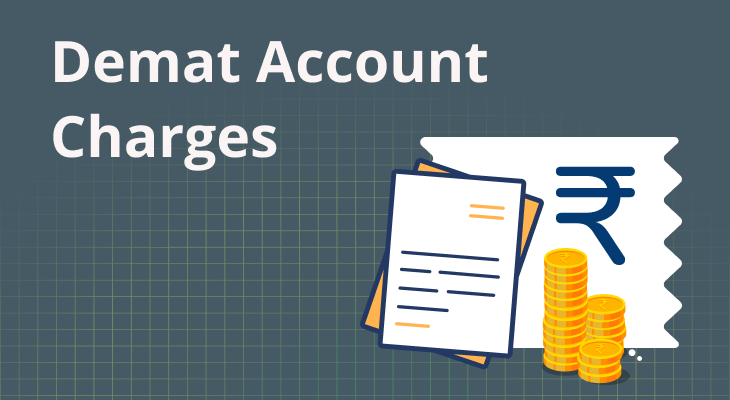The ability to invest in the stock market has increased in the current digital age. Online trading platforms have made it simple for investors to purchase and sell stocks with just a few clicks. It is necessary to create a demat account to participate in this active market. A demat account serves as a digital vault for the electronic storage of your securities. However, it is important to comprehend the various fees involved with a demat account before creating one. This extensive manual will examine demat account fees and the stock market’s importance of these fees.
What is a Demat Account?
A demat account, short for a dematerialized account, is an electronic account used to hold and trade securities in a digital format. It eliminates the need for physical share certificates and allows investors to store their investments in a secure and convenient manner. By opening a demat account, investors can buy and sell shares, bonds, mutual funds, and other financial instruments electronically.
Importance of a Demat Account
In the modern stock market, most trading transactions occur in electronic form. A demat account provides several advantages over traditional physical securities. It offers a secure and efficient way to hold investments, eliminates the risk of loss or theft of physical share certificates, and facilitates the seamless transfer of securities. Additionally, it enables investors to participate in various market activities, such as IPOs, rights issues, and bonus offerings.
Demat Account Charges
Opening and maintaining a demat account involves certain charges. Let’s delve into the key demat account charges that investors should be aware of:
- a) Account Opening Charges: When you open a demat account, the depository participant (DP) charges a one-time opening fee. The charges may vary across different DP service providers. It is advisable to compare the charges offered by various providers to make an informed decision.
- b) Annual Maintenance Charges (AMC): Demat accounts incur annual maintenance charges for the upkeep and maintenance of the account. These charges are typically levied at the beginning of each financial year. Again, the AMC may differ among DP service providers. Some providers may offer zero AMC for the first year or provide waivers based on the volume of transactions.
- c) Transaction Charges: Every time you buy or sell securities, a transaction charge is levied. It is a nominal fee imposed by the DP on each transaction. The charges may be a percentage of the transaction value or a fixed amount per transaction. Reviewing the transaction charges to assess the impact on your trading activities is essential.
- d) Dematerialization Charges: A dematerialization charge is applicable if you hold physical share certificates and wish to convert them into electronic form. This charge covers the cost of converting physical certificates to digital format. The dematerialization process is crucial for seamless trading and easy transfer of securities.
- e) Rematerialization Charges: If you want to convert your electronic securities into physical certificates, a rematerialization charge is levied. Although the industry is moving towards complete dematerialization, this charge may be relevant for specific scenarios.
- f) Pledge Charges: In certain situations, investors can pledge their securities to avail of loans or margins. When pledging securities, a pledge charge is imposed. This charge covers the administrative and operational costs associated with the pledging process.
Choosing the Right Demat Account Provider
When selecting a DP service provider, it is important to consider the overall service quality, customer support, and charges. One such reputable provider is Kotak Securities. With Kotak Securities, you can easily open a demat account and enjoy a seamless trading experience. They offer competitive charges, transparent fee structures, and a user-friendly platform. Additionally, Kotak Securities provides a comprehensive range of investment options, research insights, and the best trading app In India to help you make informed investment decisions.
Conclusion:
A demat account is a crucial tool for participating in the stock market. It involves various charges, such as account opening fees, annual maintenance, transaction charges, dematerialization, rematerialization charges, and pledge charges. Kotak Securities, a reliable and customer-centric provider, offers a hassle-free trading experience and competitive Kotak demat charges and a wide range of investment opportunities. With a user-friendly platform, transparent fee structures, and a robust trading app, Kotak Securities is the ideal choice for investors seeking a seamless and rewarding investing journey.


